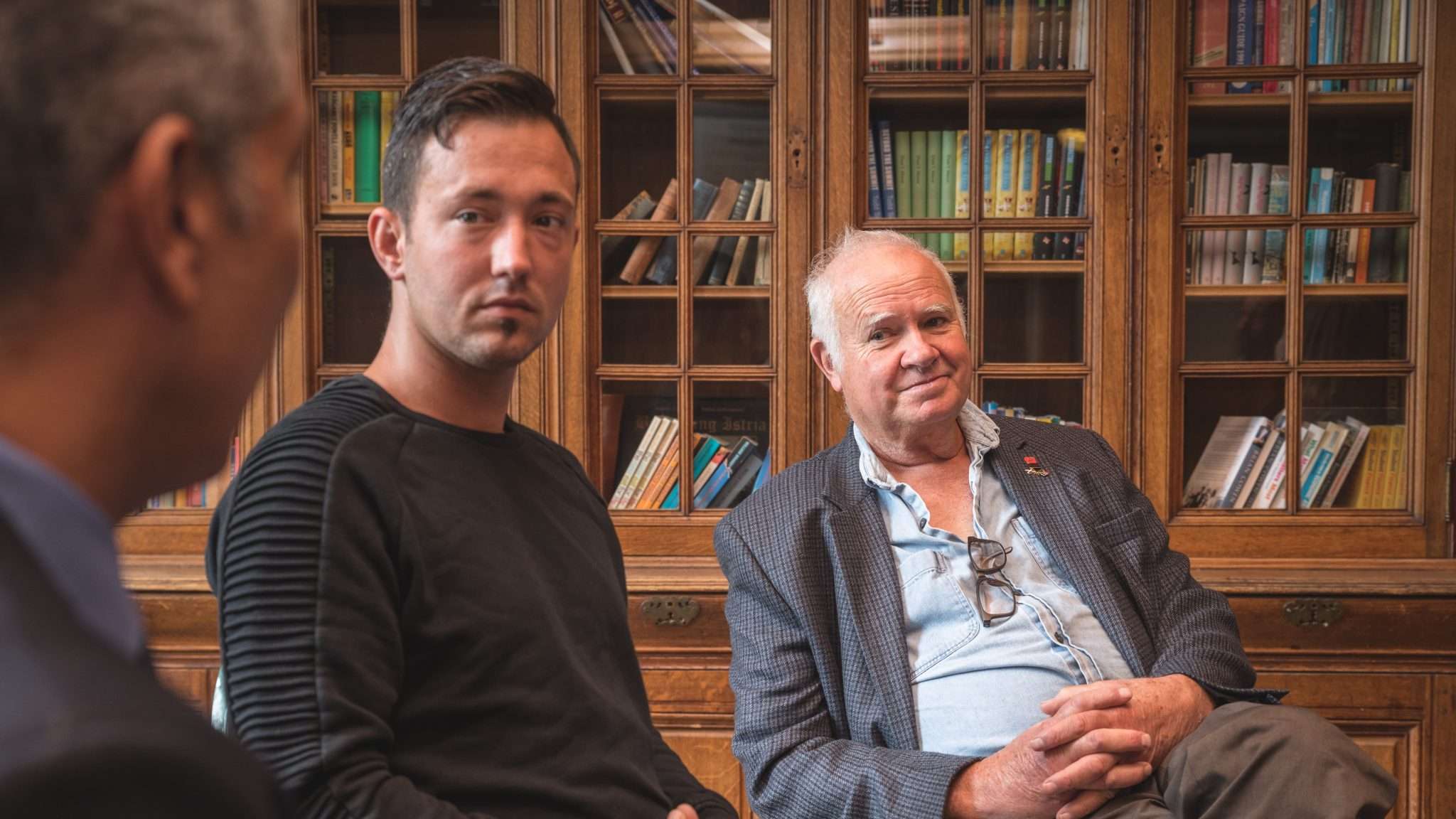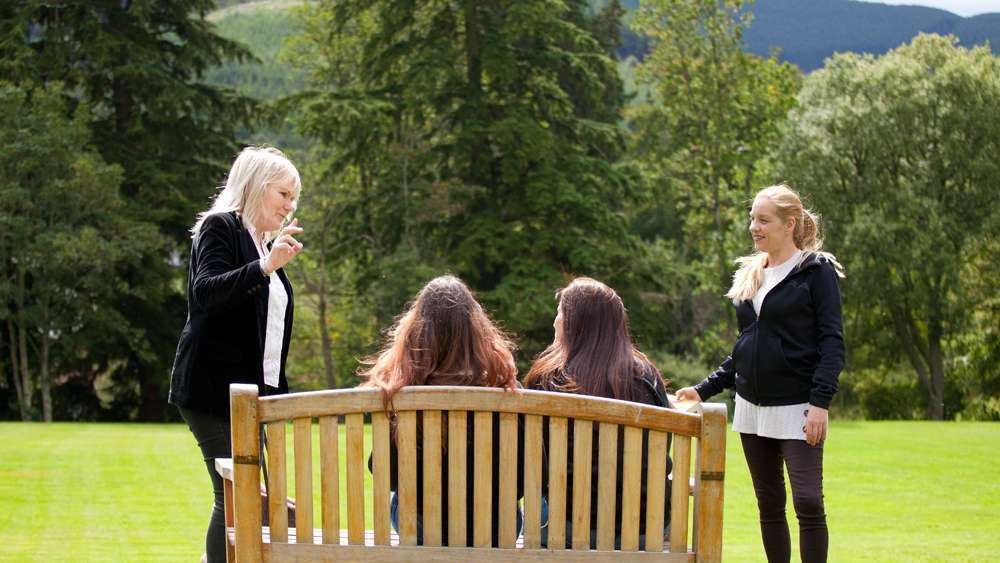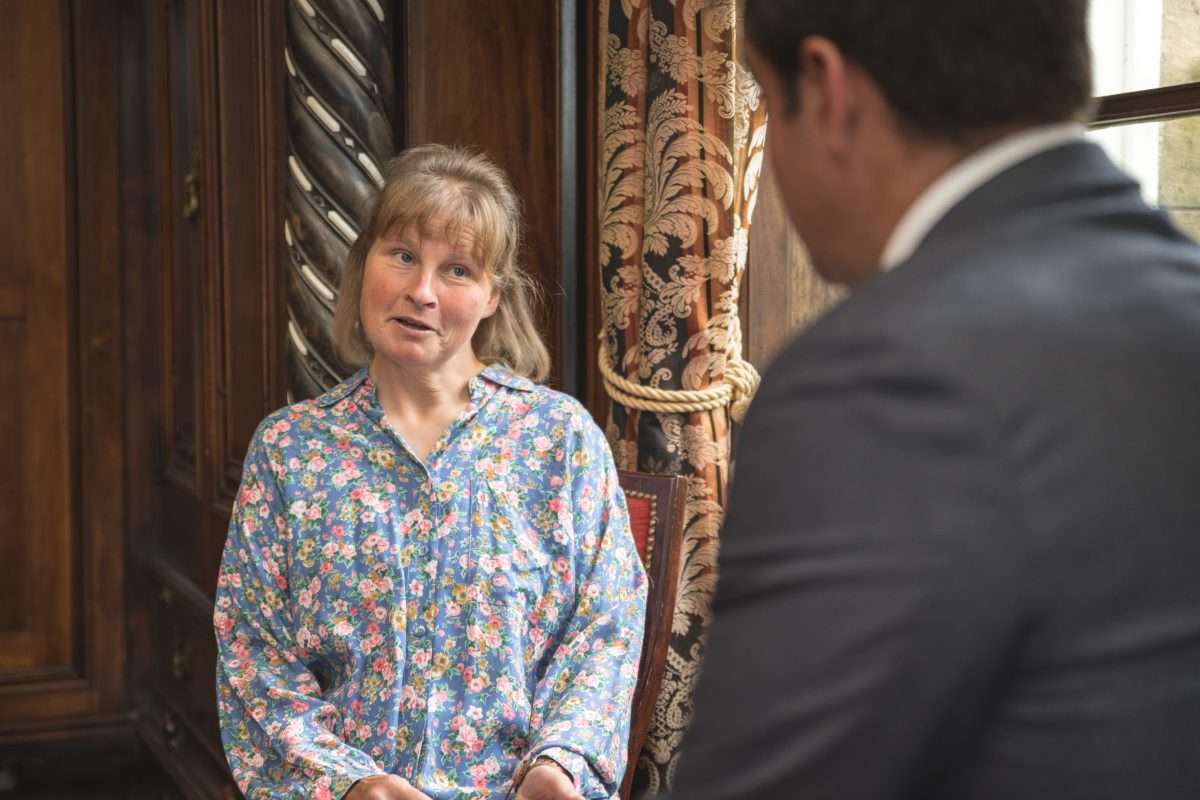Table of Contents

Download Our Brochure
Relapse Is an Unfortunately Common Occurrence
Relapse is a common occurrence even after successfully completing treatment because addiction is a chronic, relapsing disease.
When someone leaves treatment, they may feel confident that they have ‘beaten’ the disease. But relapse is most likely to occur within the first 12 months out of treatment. During this time you need to be vigilant about your recovery plan to prevent relapse.
At Castle Craig Hospital, it is crucial for those committed to recovery to follow a well-constructed aftercare programme. This will help you spot signs of relapse and possible triggers are identified at an early stage.
Relapse prevention is built into our treatment programme from the very start, and patients will work on their plan weeks before they discharge. And the most important thing to remember is – you can prevent relapse with the proper support and continuing care in place.

Treating Addiction Since 1988
Why Do People Relapse?
Relapse can happen for a number of reasons. Everyone is different and their situation is different. What may trigger a relapse for one person may not trigger it in another. However, understanding triggers can help people deal with them or avoid them. One should also remember that relapse can happen to anyone, whether they have been sober for one day or 20 years. Addiction is a powerful disease that can be successfully held in remission but will always try to return.
Emotional and physical distress, be it anxiety, depression, exhaustion or even day-to-day stress can be strong triggers for relapse . Especially during the initial period of sobriety, the person in recovery can be extra sensitive.
Isolation and lack of a supportive environment is other major factor for why people relapse. You may find that your friends and family can’t provide the right support for you. If so, you need to make sure you have somewhere else to go for help. For example, this can be an AA fellowship.
A Supportive Environment Can Help Prevent Relapse
Support also comes in the form of environmental settings. If a person just came home from an alcoholism treatment programme, it is probably a good idea to remove all alcohol from the house. Many people also change jobs after treatment because they find their old job was a direct or indirect trigger for their addiction. Another factor can be one’s social circle. Hanging out with old drinking buddies is probably not the best place to start one’s life of sobriety.
Patients attending the Relapse Prevention Course at Castle Craig are told that the first few weeks after rehab treatment need very careful consideration because, at some stage, some event will occur that tests their sobriety.
This might be a stressful argument where emotions run high or just the smell is cannabis in a doorway. It may be totally unexpected but it will happen because life is full of such moments. The key is to anticipate such moments and have the plan to handle the situation already in place; a phone number to call or a meeting to go to.
If the person wasn’t taught proper coping methods or wasn’t given the right treatment, their recovery isn’t likely to last. This is why aftercare is crucial in addiction treatment. If a person repeatedly relapses after completing an outpatient programme, they may need a more intense treatment, such as rehab.
Many Factors Affect Why You Keep Relapsing
Overconfidence in oneself can lead to trouble as well. Many people assume that once they complete a detox programme, they’re cured. Even those that complete a residential programme tend to become overconfident.
In some cases, one may think that a stay in rehab and a month of sobriety means that they can go back to their old habits but “in a more responsible manner”. People also tend to minimise their addiction after a while, forgetting all the problems they ran into, and convincing themselves that “it wasn’t all that bad”.
On the other hand, a lack of self-esteem can also be a trigger. This is where having a good support system and people who encourage you is important. It is common to feel isolated when in recovery. If a person feels like they’re failing because they don’t have faith in themselves, they can also turn to their old addiction as a method of self-harm.

“I Want to Relapse!”: Understanding Why Can Help Prevent Relapse
Perhaps this is your first time in recovery and temptation comes to mind – or perhaps you have already relapsed before and are wondering “Why do I keep relapsing?” If the thought of relapsing appears it is important to take a step back and look at the progress you’ve made. How many days have you been sober? Congratulate yourself on completing your treatment – it wasn’t easy but you made it!
Relapse can also present itself as a method of self-harm. Maybe you feel like your life is falling apart so you might as well go back to the old you. Maybe you are considering relapse as a way of getting attention because people are not listening to your cries for help. Or maybe you are thinking of relapsing to an overdose and ending your life.
You may think that one drink won’t hurt, or maybe using drugs one more time and then going back to sobriety is ok, but it can seriously hurt your recovery. Also, be honest with yourself. Is it really going to be only one drink?
Lying to yourself about how easily you can manage your addiction is often a key reason why people relapse. And remember – physical relapse is the hardest to come back from if you cross the line.
So what can you do to address your urges and prevent relapse?
- Distract Yourself:
Most cravings disappear in 30 minutes. Have a list of go-to’s when you feel the urge to relapse. This can mean doing something fun, calling a friend, or attending a meeting. There are recognised distraction techniques that can be learned, such as counting the number of birds in the sky. Or try counting the number of flagstones on the pavement. Some people make a phone call when they get a craving – any random number will do – the act of dialling and apologising for getting the “wrong number” will distract from the craving. - Share Your Thoughts:
If you’re thinking about relapsing – tell someone. People who are supporting you in your recovery may not realise that you’re struggling. They can only help you if they know you have a problem. In addition, sharing will help you feel less isolated and may prevent your relapse. - Consider the Consequences:
If you are seriously considering relapse as a possibility, take a moment to consider what will happen if you do, step by step. What will be the implications? Who will be affected? How will relapse hurt you? After all, that, ask yourself – is relapse worth it? - Relax and Unwind:
Stress and anxiety are the top triggers of relapse, so find a way to relax when things get tough. Come up with a list of things you enjoy that you can refer to when you get overwhelmed. Learn some relaxation techniques such as breathing exercises.
Recognise Early Warning Signs to Prevent Relapse
The warning signs of relapse can differ, depending on whether the person is in the emotional, mental or physical stage or relapses.
Early on, the warning signs may not be easy to spot, but this is when it is most crucial to notice them. If you have already experienced relapse before, learning how to recognise these signs can really help you to avoid them in the future. Then you won’t have to ask yourself again, “Why do I keep relapsing?”
Emotional Relapse
Emotional relapse is when a person isn’t considering using again but is experiencing psychological distress that sets them up for potential problems and physical relapse.
Signs of emotional relapse are:
- Anxiety/Irritability or anger
- Stress/Defensiveness
- Depression/Mood Swings
- Refusing to ask for help
- Neglecting any part of their aftercare plan
- Neglecting self-care
- Change in eating habits or sleep
This is the beginning stage of relapse and one that is easiest to bounce back from. Spending too much time in the emotional relapse stage can lead to a full relapse.
The best thing to do at this time to prevent relapse is to maintain self-care. This includes eating and sleeping properly, keeping up one’s exercise routine, and continuing to go to support meetings or therapy. It also helps to keep busy and occupied, with pleasant activities as well as work. Having a good support system is important during this period as well.
Those completing treatment at Castle Craig are encouraged to check their emotional health on a daily basis. A checklist is provided for this purpose, which can help establish this as a routine after patients leave treatment. A day-on-day increase in relapse warning signs means that remedial action must be taken.

Mental Relapse
When a person enters mental relapse, part of them starts to consider using and becomes more and more serious about it with time.
Signs of mental relapse are:
- Return of addictive thought patterns, such as denial
- Viewing past addiction and experiences in a positive light
- Returning back to old friends or environments associated with alcohol or drug use
- Lying about or hiding thoughts and actions
- Fantasising about and planning relapse
- Criticising recovery
- Loss of daily routine
Physical Relapse
The third and final stage of relapse is physical relapse. This is when the person returns to drug or alcohol use. At this point, the person is considered to have fully relapsed. Signs of physical relapse are the same as signs of addiction. If they have developed a secondary or substitute addiction, the signs may be slightly different.
Slip vs. Relapse
It may seem that “relapse” and “slip” are used interchangeably, and sometimes they can be – or a slip could lead to relapse. However, there is a slight difference between the two. Working out if you have experienced a slip vs a relapse could be key to what next steps you need to take, and how to handle the situation.
A slip refers to an unplanned, usually one-time use of drugs or alcohol. It can also apply to behavioural addictions. One slip doesn’t necessarily mean relapse. However, if someone slips more than once, they are generally considered to have fully, or physically relapsed. Slips can happen unknowingly. Perhaps someone ordered a virgin daiquiri and got served an alcoholic version instead. Or maybe they were at a holiday party and someone offered them a drink and they felt put on the spot. The important part is that after a slip, a person immediately returns back to their recovery plan.
Relapse refers to the derailment from a recovery plan. It is a conscious decision. Relapse also comes in stages. In the early emotional relapse stage, a person may not be aware they are starting to relapse. But even in this stage, they will start to neglect aspects of their recovery such as self-care, or attending counselling meetings.
A Case Study
Peter successfully completed 12 weeks of treatment in rehab and then returned to his family and his job as a financial advisor. He was well motivated for treatment and had put together a good continuing care plan. After treatment, he joined a local AA group and for the first two weeks back home it all went well.
He went to visit one of his best clients whom he had known for several years. The client greeted him and put a glass of wine in his hand saying, “Great to see you old chap! Help me celebrate my birthday!”
Peter was shocked. He didn’t know how to respond. Should he refuse and risk upsetting the client? What could he say? Should he just drink it and hope for the best?
Eventually, Peter responded that he was feeling ill and avoided taking a drink. But there was a moment when he came very close to relapse.
If Peter had thought ahead, he might have foreseen that at some time he would have to say no to somebody in this way and he could have planned his response.
At the Castle Craig Relapse Prevention Course, participants are asked to anticipate dangerous situations and practice saying no, using role-play methods. It is an essential part of recovery to be able to say no to alcohol in social situations, or work environments. It does get easier, but being prepared before you leave treatment gives you a headstart.
Relapse Does Not Mean Failure
Regardless of the situation, a slip or relapse doesn’t erase your progress. Everyone is allowed to make mistakes. Making a mistake doesn’t make you a failure. In sobriety, every day counts and should be celebrated. Perhaps you must reset your “I’ve-been-sober-for” tally to zero days, or feel the need to come back into professional treatment. But you should always acknowledge your past accomplishments as it will help drive you forward on your road to recovery.
Relapse is a part of the recovery process and can help strengthen one’s sobriety if handled correctly. Think of it as a one-step back, but two steps forward. Keep a positive outlook.
How to Prevent Relapse: 5 Tips for Recovery
Creating a relapse prevention plan is important to do before one even completes treatment. It is equally as important to revisit and revise it if and/or when a relapse occurs.
- Create a Schedule
Usually, before completing an addiction treatment programme, the patient will work with support staff to create an aftercare plan. This will involve regular attendance at peer-support meetings and/or one-on-one counselling sessions. Make attendance at your local fellowship mandatory, and make sure you come to these meetings regularly. Plan your week in advance, but allow some free time for yourself. Try to avoid a period of nothing to do or a state of boredom, which can lead one to make bad decisions. - List Your Triggers
Understanding triggers and risk factors are vital in developing a complete relapse prevention plan. Should you relapse, it is important to understand what caused it, so that you can avoid repeating the same mistake in the future. Each trigger or risk factor needs its own plan of action. For example, if going to parties is a trigger for you, then your plan should be either not to go in the first place. Or you can set up safeguards, such as bringing an accompanying (and sobriety-supporting) friend or setting an attendance time limit.
Likewise, spend some time understanding why you turned to drugs or alcohol in the first place. Self-reflection can be insightful. - Set Goals
Create a plan for a healthy lifestyle that will motivate you to be a better version of yourself and maintain sobriety. Learn something new or pick up a new hobby to focus on your mental and physical well-being. - Coming to Terms with Cravings
A person will also need a mental blueprint on how to deal with post-acute withdrawal and cravings. Have a list of activities that you can distract yourself with when cravings hit.
In addition, prepare for the worst if you start to feel like relapsing. Create a step-by-step action plan that you can refer to in case of an emergency. - Create a Circle of Support
The importance of self-help fellowships such as AA(Alcoholics Anonymous) and NA (Narcotics Anonymous) in early recovery cannot be emphasised enough. The support, experience, and example that a person can gather from other recovering addicts are invaluable. Family and friends will also need to participate in relapse prevention, by learning to be supportive, have patience, and maintain a positive outlook. Both you and your loved ones need to remember that communication is key. You should be able to lean on them if you are struggling, and they should be able to let you know if they are noticing signs of relapse in you.
At Castle Craig, we believe that recovery has to be worked on continuously if you want to avoid relapse. However confident you may be feeling, going home from rehab and doing nothing is absolutely not an option.


